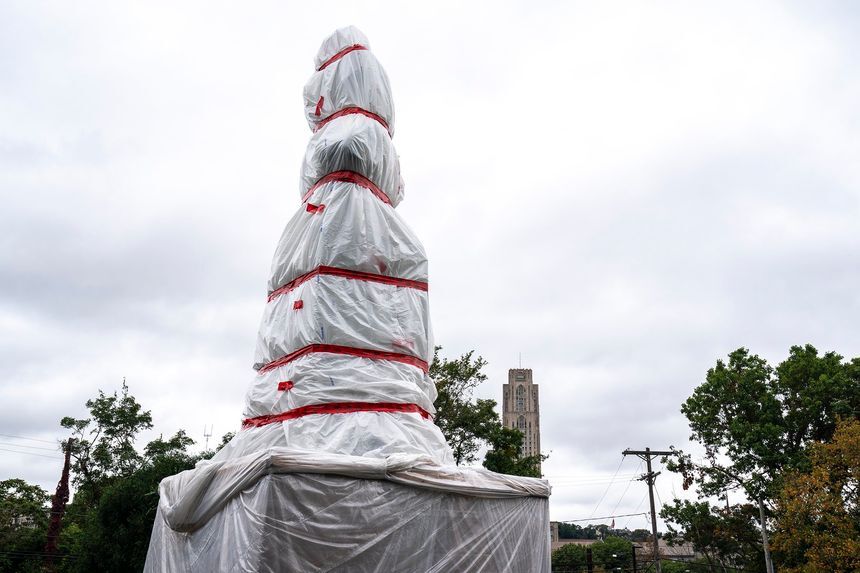
Two years after statues of Christopher Columbus were caught up in protests following the killing of George Floyd, some cities are still vexed about what to do with them, as interest groups continue to fight about whether the explorer should be celebrated or sidelined.
In Pittsburgh, a 13-foot-tall likeness of the Genoa-born explorer has been wrapped in plastic while a court battle plays out. Chicago’s mayor has yet to decide what to do with two Columbus statues the city removed in 2020. Meanwhile, a statue of Columbus sculpted this past spring to replace one that protesters threw into Baltimore’s harbor two years ago has yet to find a home.
As Monday’s federal Columbus Day holiday approaches, the controversy over its most visible symbol shows no sign of being resolved soon.
Many Italian-Americans regard Columbus as a heroic figure who should be celebrated for his accomplishments as an explorer. Many Native Americans and others associate him with atrocities against indigenous people and the emergence—years after his landing in what is now part of the Bahamas—of the trans-Atlantic slave trade. The opposing views are part of a larger national discussion playing out in schools, statehouses and elsewhere about whether and how certain historical events should be reinterpreted today.











